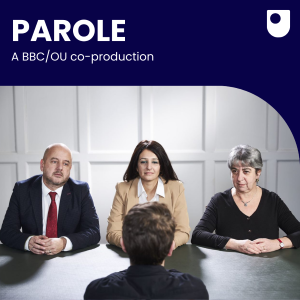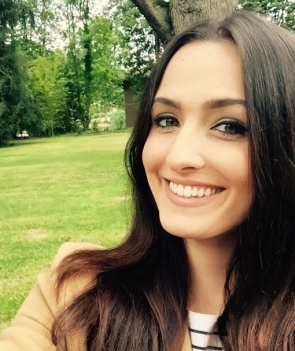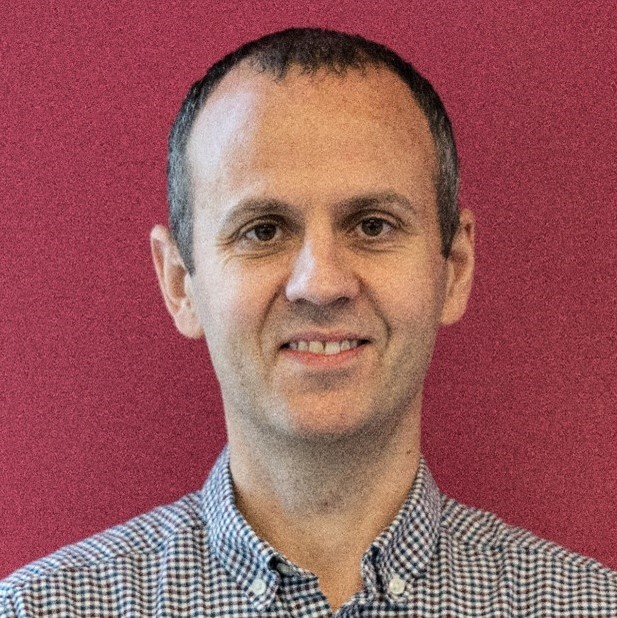BBC Parole Board: Shedding a light on parole decision-making and academic consultancy

Blog post by Dr Sophie Doherty and Dr Neil Graffin
In Spring 2023, BBC2 aired Parole, a series that explores the work of the Parole Board in England and Wales through the lived experiences of those involved with the process. Dr Neil Graffin and Dr Sophie Doherty worked behind the scenes of the Parole series as academic consultants. This blog provides an overview of the series, highlighting what the series sought to do within the wider context of increasing the transparency of the parole-decision making process, and what the role of an academic consultant is in relation to our involvement with the programme.
The Parole Board is an independent body, established in 1968 by the Criminal Justice Act 1967. The purpose of the Parole Board is to consider if an imprisoned person is safe to release on license into a community. In doing so, it acts as a court-like body. The Parole Board must be satisfied that the person is not at risk of committing offences of serious harm to the public. To establish this, members of the Parole Board will consider both risk factors and protective factors. Parole explores this decision-making process through the lived experiences of imprisoned people. Therefore, the series sheds light on the parole decision-making process to combat perceived opaqueness. This criticism emerged after the highly contentious John Worboys case, in which a subsequent government review found a lack of transparency in the parole decision-making process. A decision was taken to make the parole process more transparent which included lifting a blanket ban that prevented the Parole Board from disclosing information about its decision-making. This has allowed the Parole Board to provide hundreds of decision summaries to victims, the public, and the media. It also allowed the public access to see Parole Board decision-making. In addition to BBC Parole, Britain’s longest serving prisoner Charles Bronson recently had his case heard in public, demonstrating the shift to more transparency between the Parole Board and the public.
In line with the BBC and OU’s partnership, academics from the Law School were invited to work as Academic Consultants on the series. For the academic team of Parole, this involved being part of the production at an early stage in its development, making suggestions and comments before and during filming, viewing ‘rough cuts’ and providing feedback, and viewing any final cuts before the show goes live, and signing them off. In addition to this, the academic team also work on materials, which were advertised at the end of the programme, and housed on the OU Connect platform.
Dr Neil Graffin, commenting on the role of an Academic Consultant explained that: ‘For the academics involved, it was a hugely rewarding experience to work on the programme, as it sought to pioneer greater transparency in the parole process. As keen followers of social media, we watched in real-time the reactions of viewers as they took to post their own views of whether prisoners should have been allowed out or not. Many disagreed with the decisions made. Parole decision-making, like sentencing, will always be controversial. Some stakeholders within the process, and members of the public, may not consider that some prisoners should be released due to the crimes that they have committed. However, we considered that even if people disagreed with decisions made, at least it came from a position that they were much better informed of the process itself, including understanding the many experts involved in the process. Transparency is important if we want to create confidence within judicial decision-making, at every level. BBC Parole provided transparency and education on this important, yet often misunderstood, aspect of the criminal justice system.’
Adding to this, Dr Sophie Doherty stated: ‘As an Early Career Researcher, this was a fantastic opportunity to explore the BBC and OU’s partnership, and to develop an understanding of how media outputs relate to impact and knowledge exchange. Personally, I found it very rewarding to work with both the OU team and the BBC teams, as comments were taken on board, and we were given freedom to aid in the development of the materials. The production of educational resources was particularly rewarding as we were able to reflect on the series, formulate questions, and send these to the Parole Board. I would definitely recommend getting involved as an Academic Consultant’.
In 2022, the Minister for Justice released the ‘Root and Branch Review of the Parole System: The Future of the Parole System in England and Wales’. This document further considers the Parole Board decision-making process, and comments on the need for improvements in transparency. For other members of the public affected by Parole Board decision-making, such as victims or family members, there is also a commitment to greater victim involvement and transparency with the process as victims and their families have often complained that decision-making could be secretive, and they had limited influence over proceedings. It is anticipated that as transparency becomes a central focus in developing Parole Boards, further actions will be taken to address this. In deciding what can be done to shed light on Parole Boards and the processes involved in parole, academics will play a pivotal role in not only the form of academic consultancy, but also in helping shape the arguments, frameworks, and critical appraisals of existing and future plans. The academic team at the OU are grateful to the BBC for the opportunity to help address opaqueness, and shed light on Parole Boards in England and Wales.

Sophie Doherty
Dr Sophie Doherty (she/her) is an award-winning lecturer and a Fellow of the Higher Education Academy. Sophie is a Lecturer in Law (Central Academic) at The Open University (OU). Prior to joining the OU, Sophie held positions at Dublin City University, and tutored on various modules at Queen's University Belfast, and Durham University. She has presented at academic conferences and guest lectured, nationally and internationally, on her research.
Sophie's research is primarily focused on the areas, and intersections, of sexual violence, justice, law and art. She is also involved in multiple networks and research clusters, reflecting her varied research interests.

Neil Graffin
Neil is Senior Lecturer in Law and Head of Department at The Open University (OU). He is also the Chair of the Sanctuary Advisory Network (SAN) at the OU.
Neil studied for a PhD in Law in Queen’s University Belfast, where he also completed both his undergraduate and postgraduate degrees. Neil has also worked as an Associate Lecturer with The Open University and a Teaching Assistant at Queen’s University.